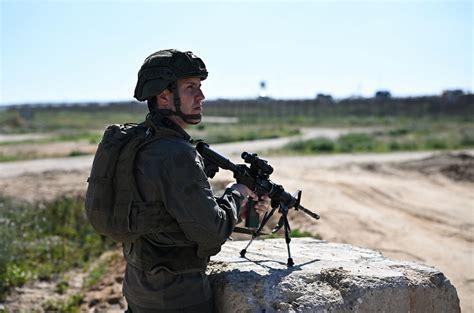
Hamas softens stand, agrees to international guarantees for permanent truce, phased Israeli withdrawal: Report
From abandoning its demand for an Israeli commitment in writing to a permanent ceasefire to agreeing to a phased Israeli withdrawal, the Palestinian militant group Hamas has softened its conditions for accepting a ceasefire to stop the nine-month-old Gaza war.
According to The National report, citing sources, the terror group has presented new ideas to mediators in Egypt and Qatar which include their new positions like abandoning its demand for an Israeli commitment in writing to a permanent ceasefire at the end of the initial 45-day phase of the plan and accept international guarantees on the ceasefire or a “sustained calm”, which would commence at the start of the first phase and conclude before its end.
Hamas has also stated its willingness to accept a gradual Israeli withdrawal from Gaza, dropping its previous demand that the pullout must be completed by the end of the first phase.
According to the report, sources indicated that Hamas insists that all Palestinian prisoners it seeks to exchange for hostages in Israeli custody must be released.
However, the sources said Hamas is now willing to consider releasing them in three phases as part of the plan.
The terror group’s decision to release the hostages hinges on the progress of talks for a permanent ceasefire and Israel’s withdrawal from Gaza, the sources added.
Hamas stated that its political leader, Ismail Haniyeh, has been in contact with Egyptian and Qatari mediators to discuss the movement’s proposals aimed at reaching an agreement.
Discussions have also taken place with Hamas leaders in Turkey, with the group approaching the ongoing deliberations in a positive manner.
Fresh impetus to talks
Meanwhile, Israel on late on Thursday in a cabinet meeting decided to send a Mossad chief David Barnea-led delegation to Qatar for talks, a day after Hamas submitted its latest amendments to the current proposed deal.
In a meeting with his negotiators ahead of the decision, Netanyahu “stressed again that the war will end only after achieving all of its goals, and not one moment earlier,” Times of Israel quoted an Israeli official as saying.
Prime Minister Benjamin Netanyahu updated US President Joe Biden about the decision to send negotiators to the talks in a phone call between the two leaders on Thursday.
In his call with Biden, Netanyahu reiterated the same commitment to Israel’s war goals, according to the Israeli readout. A readout of the conversation issued by the White House said Biden welcomed “the prime minister’s decision to authorize his negotiators to engage with US, Qatari and Egyptian mediators in an effort to close out the deal.”
According to the Times of Israel report, citing the Israeli official, Barnea is likely to meet Qatari Prime Minister Mohammed bin Abdulrahman Al Thani on Friday to try and build off of the updated hostage-ceasefire deal proposal Hamas submitted on Wednesday.
Gazans seek early resolution
Earlier this week, a social media post gained widespread attention among Palestinians in Gaza, urging Hamas to accept any agreement to halt the ongoing conflict.
Referencing the tens of thousands of grieving Gazans, the post implored Hamas to end “the suffering, humiliation, and oppression endured over the past nine months.”
In a thinly veiled critique of Hamas’s leadership, the post appealed to “the esteemed leaders who appear on our screens, dressed in the finest clothes, wearing expensive watches, with neatly styled hair, sitting in luxurious chairs, we urge you to respond immediately, to preserve what remains of the nation’s dignity.”
“We are exhausted, we are drained, we are sick, and we are humiliated,” The National quoted the post as saying.
Umm Mohammed Mousa from northern Gaza said she fully supported the message in the viral post.
“Life has become unbearable. The war must end immediately, in any way and without any restrictions, because the people can no longer endure it. Life must return to how it was before the war,” she told The National.
How it all started
The Gaza conflict erupted after Hamas launched an attack on southern Israel last October, resulting in around 1,200 deaths and the capture of 240 hostages. In response, Israel initiated a sustained military campaign, resulting in the deaths of over 38,000 Palestinians to date, with twice as many wounded and 80 per cent of the territory’s 2.3 million residents displaced.
The war has devastated much of Gaza’s urban areas, triggering a humanitarian crisis. Many residents in this densely populated strip now face hunger, with the specter of famine looming particularly in the north.
Efforts to negotiate a ceasefire in Gaza have gained momentum amid growing domestic criticism of Prime Minister Netanyahu’s handling of the situation. Thousands of Israelis have been rallying weekly in Tel Aviv and other cities, urging for a resolution.
Hamas, in control of Gaza since 2007, is also facing mounting pressure domestically to agree to a ceasefire.
Source » firstpost.com





